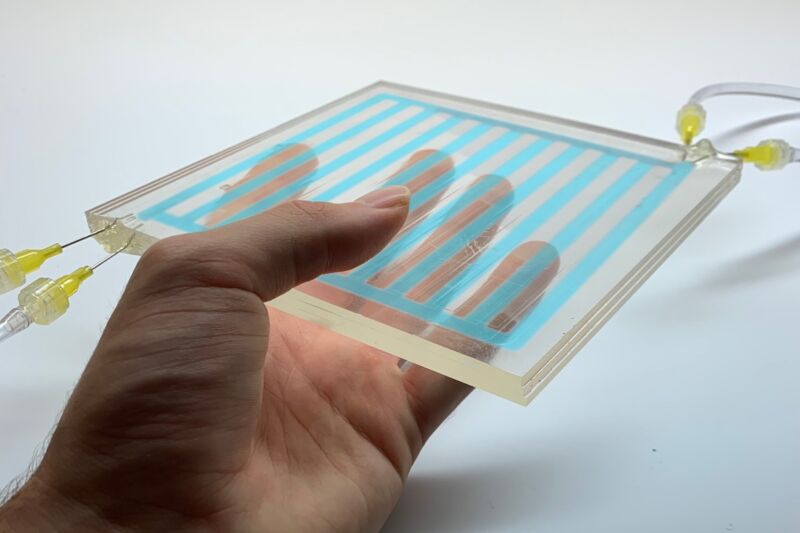Squid skin inspires novel “liquid windows” for greater energy savings

Enlarge / Artist's impression of a "liquid window' prototype inspired by the structure of squid skin. (credit: Raphael Kay, Adrian So)
Squid and several other cephalopods can rapidly shift the colors in their skin, thanks to that skin's unique structure. Engineers at the University of Toronto have drawn inspiration from the squid to create a prototype for "liquid windows" that can shift the wavelength, intensity, and distribution of light transmitted through those windows, thereby saving substantially on energy costs. They described their work in a new paper published in the Proceedings of the National Academy of Sciences.
Buildings use a ton of energy to heat, cool, and illuminate the spaces inside them," said co-author Raphael Kay. If we can strategically control the amount, type, and direction of solar energy that enters our buildings, we can massively reduce the amount of work that we ask heaters, coolers, and lights to do." Kay likes to think of buildings as living organisms that also have "skin," i.e., an outer layer of exterior facades and windows. But these features are largely static, limiting how much the building "system" can be optimized in changing ambient conditions.
Installing blinds that can open and close is a crude means of easing the load on lighting and heating/cooling systems. Electrochromatic windows that change their opacity when a voltage is applied are a more sophisticated option. But, per Kay, these systems are pricey and have complicated manufacturing processes and a limited range of opacities. Nor is it possible to shade one part of a windowpane but not another.